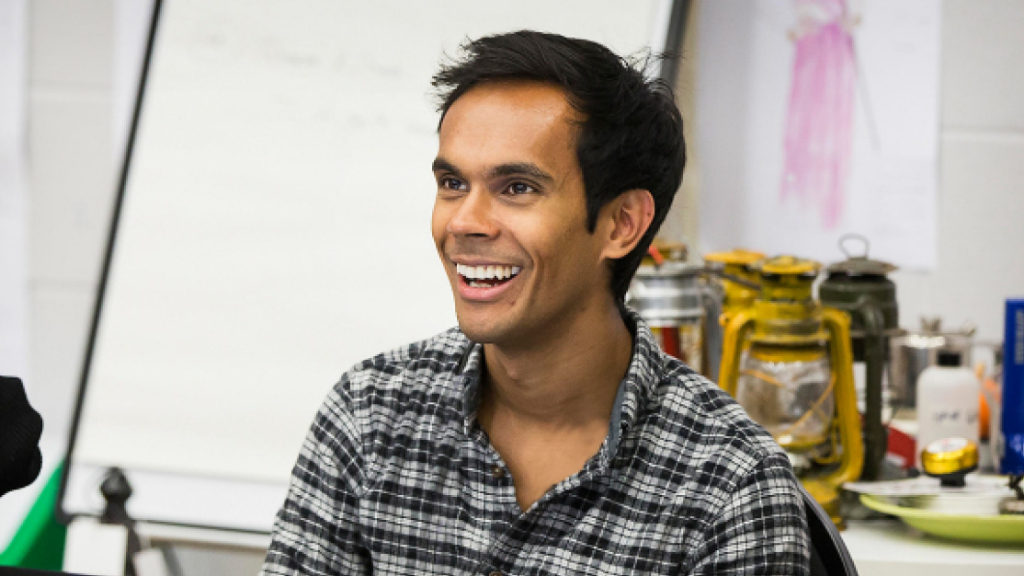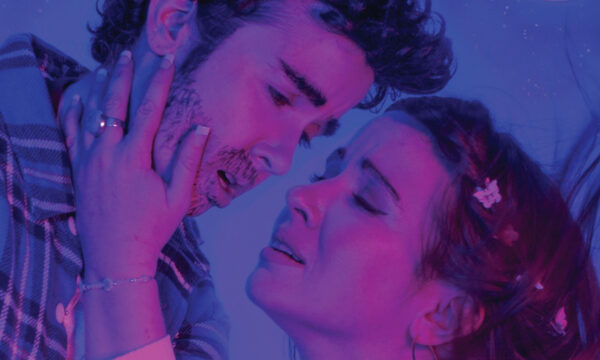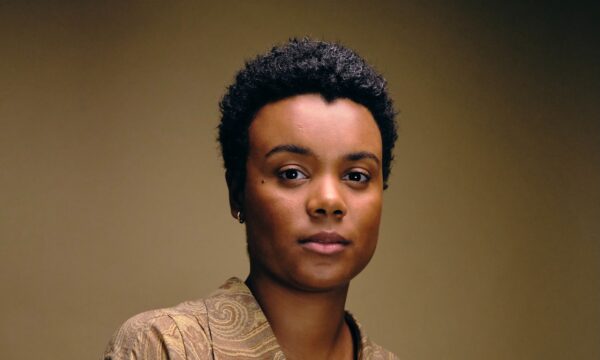“No cultural space should feel the same after this”: An interview with HighTide artistic director Suba Das

HighTide is a theatre company and not for-profit organisation based in East Anglia that produces works by new and diverse playwrights. Now, HighTide is launching the Lighthouse Programme – a collection of brand new free projects and programmes for artists, audiences, and communities that aim to serve as a beacon of hope in a time of isolation. Each project within the Lighthouse Programme reflects HighTide’s values: introducing audiences to new works that speak to the times we live in by the most exciting writers in the UK; supporting emerging writers on their journey; and engaging communities in their home region of Suffolk.
HighTide’s artistic director, Suba Das, spoke to us about the process of creating such a comprehensive programme and what it means to support the arts during this unprecedented global pandemic.
The Lighthouse Programme description mentions that it was created on the spur of the moment, “invented in the past week.” HighTide is also the first NPO to launch such a comprehensive programme of support for the performing arts sector. Can you tell us more about what inspired you to act so quickly?
I was on a conference call with about 20 of the other artistic directors in the UK as the government essentially mandated the closure of theatres. Being on that call, knowing that so many of my peers were now having to cancel shows, stand down teams in rehearsal, deal with the astronomical impact of loss of revenue; it made me realise how frankly lucky we were at HighTide. I had decided to postpone our annual festival from its usual September slot to March/April 2021 as I wanted us to take time to develop some new commissions and structures around artist and audience development. We already had breathing space, so it felt like it would be disrespectful, almost, if we didn’t make use of that and send out some messages and projects of hope.
Can you tell us about the process of building the Lighthouse Programme overall?
The programme pulls forwards various plans and projects we had planned to roll out, following a period of reflection around the company’s identity and USP as part of the handover process – I took over the company in October last year. We knew we wanted to do more around writer development and engaging wider and more diverse audiences in our home region of the East of England, where we have presented our annual festival for the past 13 years. In light of the crisis, we looked at all of those plans, thought about how we could modify them to make them relevant and accessible (and free of charge) in the current circumstances, and got them out there.
What are you hoping to achieve with the Lighthouse Programme?
Quite simply we want to create a sense of conversation and community. That’s what theatre does whenever it’s at its best, and those values are even more important at a time of social disruption.
Why do you believe that it’s particularly important to support artists right now?
At HighTide, our job is to support playwrights and emerging voices year-round, so that agenda hasn’t changed. We’re aware right now, though, that there are huge levels of mental, economic and social anxiety and that especially for writers and other such freelance artists, who generally have to create their own working structure and parameters, many of their pillars of normality and stability will have fallen away, so we’re just trying to shout louder at this moment about ways in which we can help fill those gaps.
You’ve chosen five writers to develop full-length plays for your inaugural HighTide Festival in 2021. What made these writers stand out to you from the rest?
Dawn [King], Morgan [Lloyd Malcolm], Ben [Weatherill], Aisha [Zia] and Debris [Stevenson] to my mind represent an incredible snapshot of British theatre at its diverse best. I’m privileged to have known these writers for many years, through the Old Vic New Voices and then the work I did commissioning and developing new talent at Leicester Curve. It’s quite nice when people you’ve grown with and championed become BAFTA, Olivier and Evening Standard Award nominees! What unifies them is a commitment to honouring and celebrating the lives and experiences of people we don’t always hear from or about; to being hugely playful with form and style and structure; embracing the absolute liveness and weirdness of theatre; and making work that really does have to be encountered by communities whose hearts are all beating in the same space. Even if they may have to sit six feet apart. So we wanted to introduce these voices to our region in any case, and the monologue series felt like it could form a soft introduction in a way. Now more than ever is a nice time for people to make new friends!
What does the title Love in the Time of Corona mean to you?
Well, aside from a shameless steal from Gabriel García Márquez, the provocation I gave to the writers was that we absolutely know and understand that there’s despair right now, but we’re also surrounded by daily acts of kindness, from the unbelievable bravery of our key workers through to neighbours simply helping each other with the shopping and taking more time to say hello. I don’t ascribe to mindless propaganda and there’s plenty of that around at the moment, but I believe people deserve to encounter light, especially when it’s dark.
What else can we expect from the HighTide Festival in 2021?
I honestly couldn’t tell you at the moment. I don’t think the festival, or indeed any cultural space, should feel quite the same after this and one of the advantages of being a fairly small and hopefully nimble company is that we can be as responsive as possible.
Do you think there’s a future for such initiatives supporting artists facing socioeconomic disadvantages and offering digital resources in the future, once isolation is no longer necessary?
Isolation isn’t just a reality for people in a pandemic, although I appreciate it’s fairly novel in London. In the east of England, rurality and low income both contribute to huge amounts of social isolation. Consequently, we at HighTide will certainly be holding fast to the new tools we’ve developed in this time, especially now we’ve seen how brilliantly they work. We had 60 aspiring writers, mostly from the East and/or from low income backgrounds, on Zoom with Dawn King last week, learning about playwriting. It’s phenomenal, wonderful reach and will absolutely be a mainstay of our participatory work going forwards.
How can theatre help communities who are isolating and practising social distancing to mitigate the spread of the coronavirus?
Hopefully by helping people feel connected, valued, celebrated, even if they have to be alone. We’re not doctors and we’re not relief organisations, so that’s really all we can do. Everything else should be left to the experts, who should be listened to and supported.
What plays or other artworks do you personally turn to when you’re feeling anxious or worried about the future, as many people are feeling right now?
Madonna’s back catalogue. That woman will survive any apocalypse.
Lora Maslenitsyna
Love in the Time of Corona will stream online via HighTide’s YouTube channel from 9th April 2020. For further information about HighTide Theatre’s Lighthouse Programme, visit their website.
























Facebook
Twitter
Instagram
YouTube
RSS